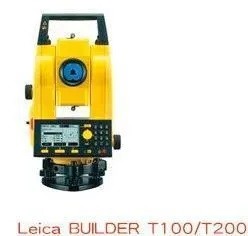LOL...
Swiss firm sends Taiwan's 'carrier killer' devices to China for repairs
Concerns arise that theodolites used with Hsiung Feng III may have been tampered with when Leica Geosystems sent it to China for repairs
By
, Taiwan News, Staff Writer 2023/01/04 16:01
TAIPEI (Taiwan News) — Concerns that devices used with Taiwan's "Carrier Killer" missile may have been tampered with or information leaked when they were sent to China for repairs.
Amid the growing threat of an invasion of Taiwan by Chinese forces, Taiwan's National Chung-Shan Institute of Science and Technology (NCSIST) has developed the Hsiung-Feng III (雄風三型) anti-ship missile, which has been nicknamed the "Carrier Killer" due to its supersonic speed, range of up to 400 kilometers, and 225 kg warhead. However,
on Wednesday (Jan. 4) cited sources as saying that the theodolites used to calibrate the missiles were sent by a Swiss company to China to make repairs due to malfunctions, potentially exposing sensitive data from missile tests and endangering Taiwan's national security.
According to the magazine, the theodolites used to make measurements on the Hsiung Feng III are made by the Swiss firm Leica Geosystems. The Leica Builder T100/T200 is the firm's highest-end electronic theodolite with unique telescope optics, which can accurately measure various azimuths in only 0.5 seconds, so it is widely used in precision components such as aerospace, automotive, national defense, and optoelectronics. The Ministry of National Defense has recently expanded the procurement of new ranging theodolites for use by artillery units.
As part of its strategy to turn Taiwan into a "hedgehog island" to deter military aggression by China, the NCSIST developed the Hsiung Feng missile series, which has gained the attention of the military industry of many countries after a Hsiung Feng III accidentally launched and struck a fishing vessel in 2016. However, according to Mirror Media, theodolites used for measuring the Hsiung Feng III were sent to Leica Geosystems for repairs due to technical issues.
The NCSIST had recently discovered that the connector pins on two Leica theodolites had become loose. In early December of 2021 and late February 2022, a company distributor located in New Taipei City's Xindian District sent the products back to Switzerland for Leica Geosystems to carry out repairs. However, people familiar with the matter said that the repairs were very fast and after about three months, the two theodolites were sent back to NCSIST in February and May of 2022, respectively.
(Leica Geosystems image)
After the theodolites were repaired, their measurements of the Hsiung Feng missiles returned to normal. It was not until September of last year that NCSIST personnel checked the import declaration form and other materials returned by Leica Geosystems' maintenance center, and they noticed that something was amiss.
The documents revealed that the devices had actually been sent back to Taiwan from Qingdao in China's Shandong Province. This means the equipment was repaired in China or was sent to Taiwan via China, where secrets about the missiles or other parameters may have been seen by the Chinese military.
On Wednesday, the NCSIST issued a press release pointing out that the theodolite is an optical correction device used to measure the missile body, launch box, frame, and other objects on its production assembly line, and it is not used to control the continuous positioning of the Hsiung Feng missile.
The institute stated that this equipment was purchased from Leica Geosystems through public bidding in 2021. Due to some equipment defects, after removing the relevant storage memory card in the equipment during the warranty period, the domestic distributor was required to send them to the original Swiss factory for repairs.
NCSIST stated that after the equipment was repaired and sent back, it took the initiative to find that the import declaration stated that it was exported from Qingdao Jiaodong International Airport ("the original manufacturer'' Asian maintenance center). Therefore, an information technology security appraisal of this device was carried out immediately to confirm that no malicious programs were implanted, and the institute claims there are no concerns over information security leaks.

